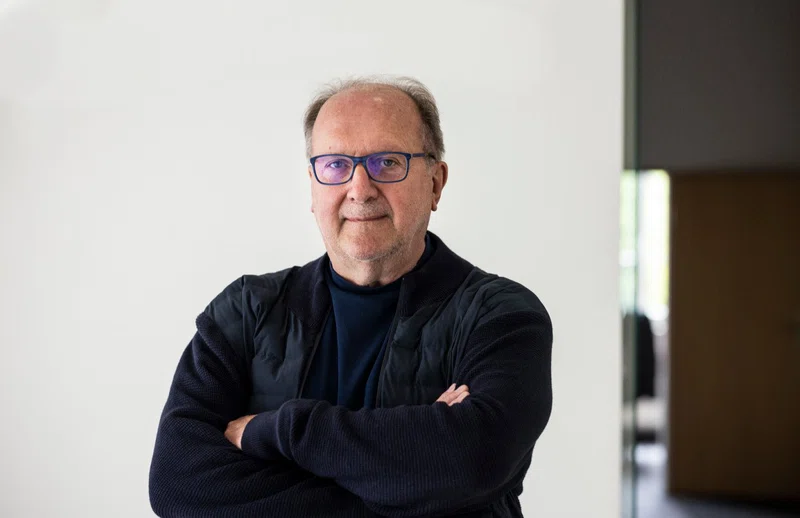After two decades of dedicated leadership at the International Business School, our esteemed Rector, Dr. László Láng, is stepping down.
Recently, Dr. Láng was honoured with an Honorary Doctorate from the University of Buckingham, recognising his remarkable contributions to education and leadership. At the award ceremony, Professor John Drew delivered a heartfelt laudation, highlighting Dr. Láng's achievements and his profound impact on our institution and the broader educational landscape.
We invite you to read the full speech below:
-
"Dr. László Láng – Doctor of Science
Chancellor, it is an honour to present Dr. László Láng to you for the conferment of the degree of Doctor of Science, honoris causa.
Dr. Láng graduated in 1978 from the Karl Marx University of Economics, now known as Corvinus University of Budapest and completed his doctorate at the prestigious Hungarian Academy of Sciences in 1985. Until the early 1990s, he conducted advanced research, and lectured extensively on topics relating to global politics and geoeconomics at independent research organizations in Hungary and America, most notably at the Institute for East-West Security Studies in New York, a think tank that functioned as a means of addressing areas of political dispute across the Iron Curtain between 1980 and 2021.
Notable writings from this period deal with topics as diverse and resonant as the Political Economy of East-West Relations[1], The Poor Rich: An Inquiry into the Dialectics of Capital Abundancy and Underdevelopment in the Middle East,[2] Bourgeois and Marxist Theories on Oil Prices,[3] and the relationship between economic change and social cohesion in Eastern Europe.
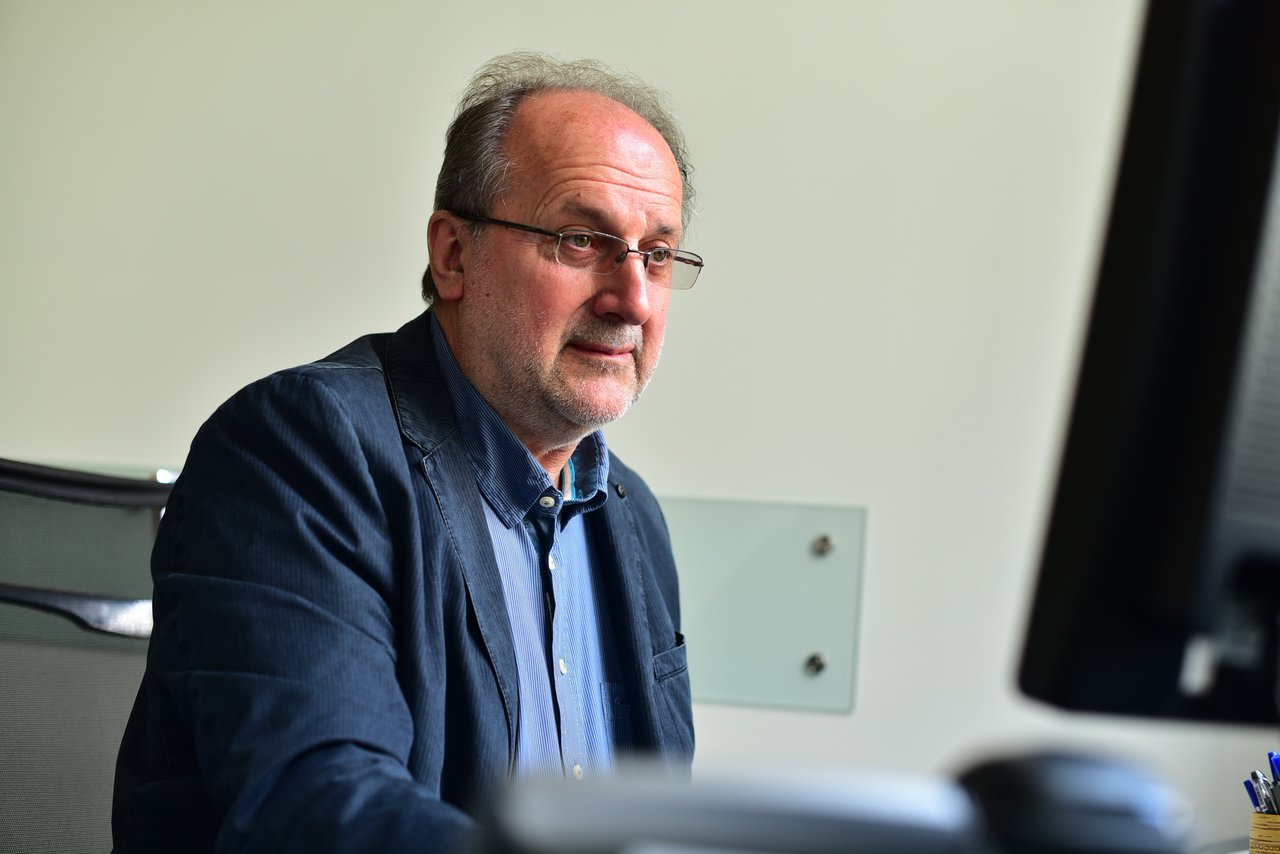
Hungary had been a member of the Warsaw Pact since 1955, and during the country's regime change to a thriving democracy achieved in the so-called "Negotiated Revolution" of 1989, during that time, László Láng was deeply involved as acting head of the Hungarian Institute of International Affairs, a non-profit economic organization within the ownership of the Hungarian State, which functions as a think tank and serves research purposes, its main aim being to support the strategic decision-making in foreign policy. As acting head, he established a highly renowned platform for international contacts and foreign policy discussions of the emerging new political forces in Eastern Europe and beyond.
He held a number of high-level board positions in Hungarian state banks before privatisation, as well as in the country's airlines and railroads. His banking career peaked between 1997 and 2000 when, as CEO of a large commercial bank in Vienna, in accordance with the owner’s strategic goal, he successfully liquidated an organization with internationally dispersed assets of over half a billion € euros.
His management skills were demonstrated from 2003, when he was appointed first as CEO, and then as Rector of IBS, International Business School Budapest, a private university in the Hungarian and Austrian capitals, boasting a student body of 1300. He has served in that role ever since, turning it from a local, to an internationally-oriented and globally-recognized higher education institution.
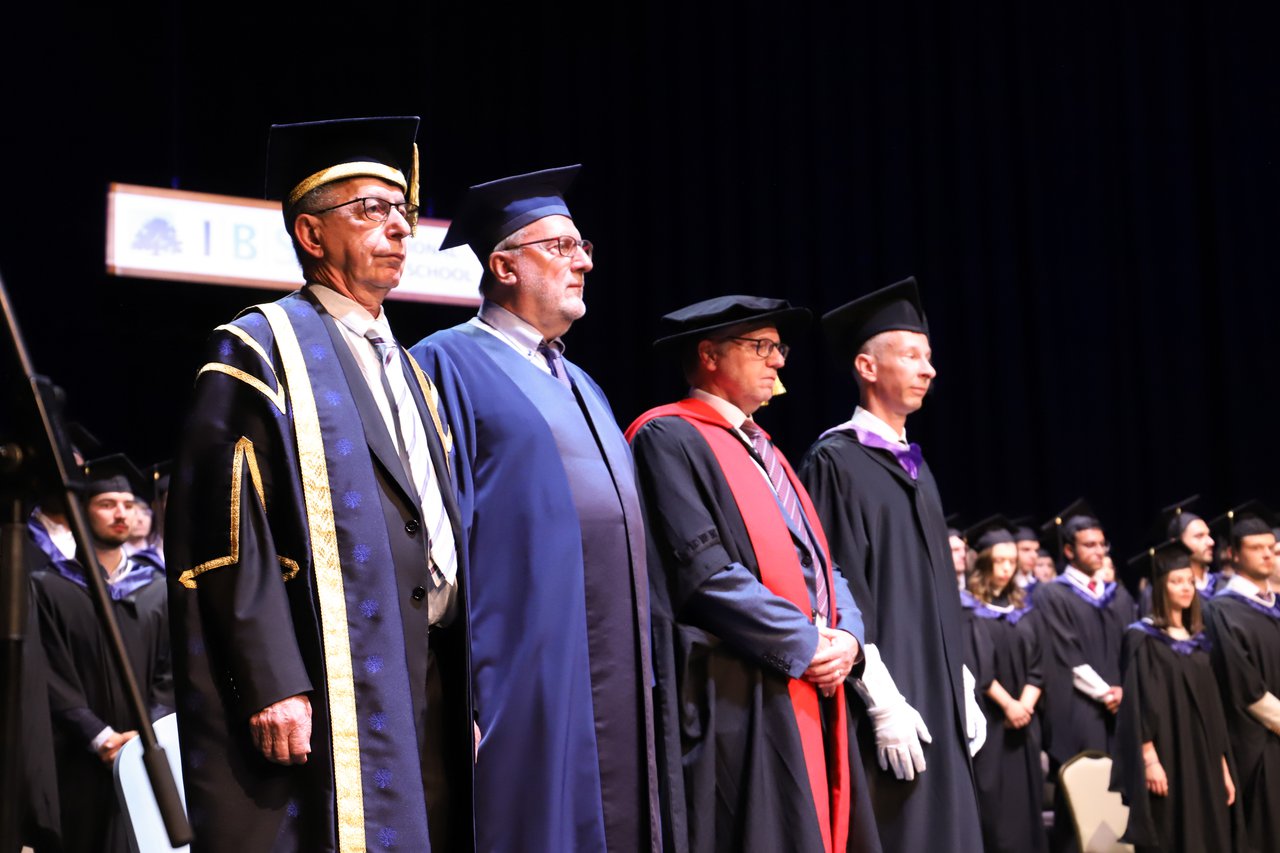
Chancellor, in close-knit validation-based collaboration with UK universities, in particular with The University of Buckingham, over the past 11 years, Dr. Láng has created an academically and financially strong, agile and flexible provider of dual, undergraduate, graduate and postgraduate degree programmes for students from some 80 countries of the world.
In his well-known story for grown-up children, Animal Farm, George Orwell famously noted that 'all animals are equal but some are more equal than others'—and we might say something similar about university partnerships and collaborations. In theory they are all equally important, but some are just more equally important than others, and this is certainly the case with The University of Buckingham and IBS. All my colleagues here in Buckingham, whether from the School of Business, Registry, or from our own Collaborations Department, hold IBS in exceptionally high regard, due to its administrative efficiency, its educational standards and evident care for its students. Such things flow from the top as well as the rank and file, and when—if Dr. Láng will forgive me—one has been Rector for as many years as he has, we have no hesitation in attributing this degree of excellence to his inspiring leadership. His own senior team value his ability to maintain the persona of a strong-handed leader whilst remaining empathetic, generous and sensitive to colleagues in need of any kind of help. All that, and I’m told, unbeatable at trivia quizzes with a fantastic memory for facts, names, dates and being a great planner and host of Christmas dinners.
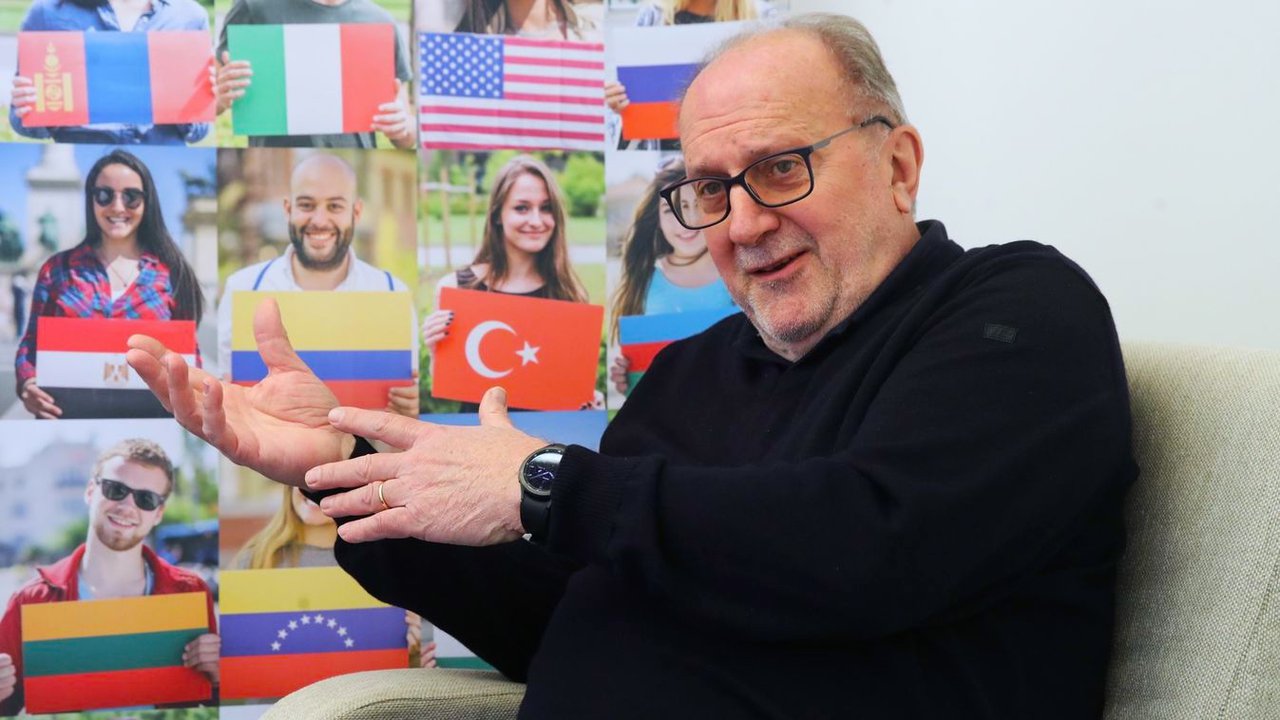
His particular experience in many areas that Buckingham values highly—in business, in finance, in economic affairs and political analysis—has fostered a dynamic and innovative approach to education, and as an educational entrepreneur and thinker, it is particularly appropriate that he should receive his degree at this ceremony for graduates of our own innovative School of Education. He has prophetic words for the university sector, however, which ought not, he believes, to rest on its academic laurels. In a recent interview,[4] he points out that 'throughout the world, Higher Education is a highly conservative industry, and its conservatism in the face of unprecedented technological changes may be its undoing if universities continue to act as though they can muddle through unaffected.'
‘The future may look rather like what has already happened with foreign language education,’ he argues: ‘if you can prove your knowledge and skills, you can get a certificate regardless of where or how you acquired them. Individualised learning is becoming more and more in demand, with AI only accelerating this trend.’ In this vision of a radically altered role for universities globally, Higher Education institutions will transform, Dr. Láng suggests, ‘into educational support institutions or facilitators, giving students far more freedom to choose when and what to study.’
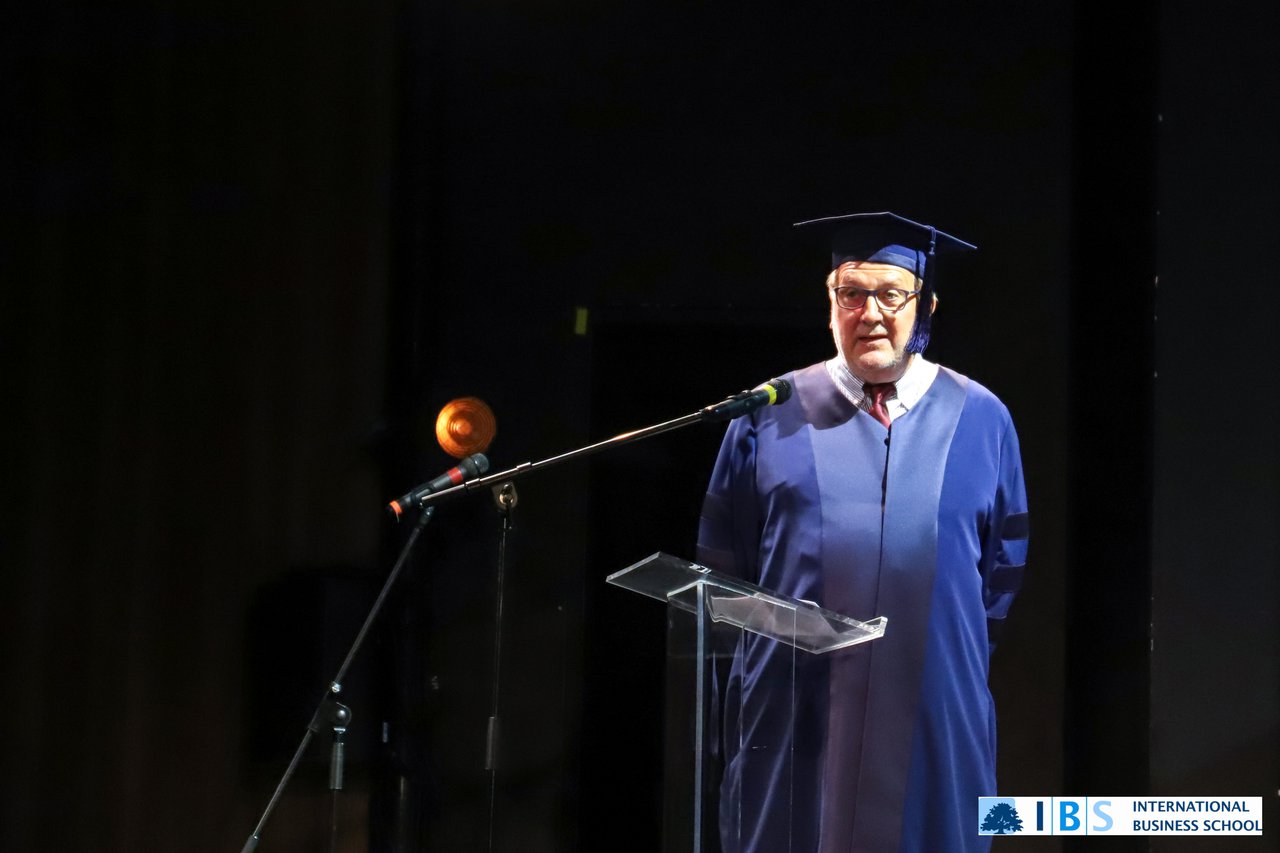
‘For the time being, higher education merely teaches the concept of creative destruction; students are not encouraged to experience it.’ Dr. Láng warns us that this ‘will result in the “creative” destruction of the global higher education system as we now know it, which must first come to an end before something better, more creative, more liberating may arise from it.’
With that arresting image, Chancellor, of the twenty-first century university sector rising to new life like the Phoenix, from the ashes of its own predecessor—a Phoenix surely related somewhere along the evolutionary line, to the Buckingham Swan—I call upon Dr László Láng, to come forward to receive his degree."
[1] (Occasional Paper Series, 13) by Laszlo Lang | Mar 6, 1990.
[2] Institute for World Economics of the Hungarian Academy of Sciences, 1981.
[3] A Survey and Critique By László Láng 1982.
[4] Interview June 2023 - https://www.ibs-b.hu/en/about-ibs/news-and-events/lang-laszlo-interview/ [accessed 04/03/2024].
cover photo: Kaiser Ákos, pénzcentrum.hu
